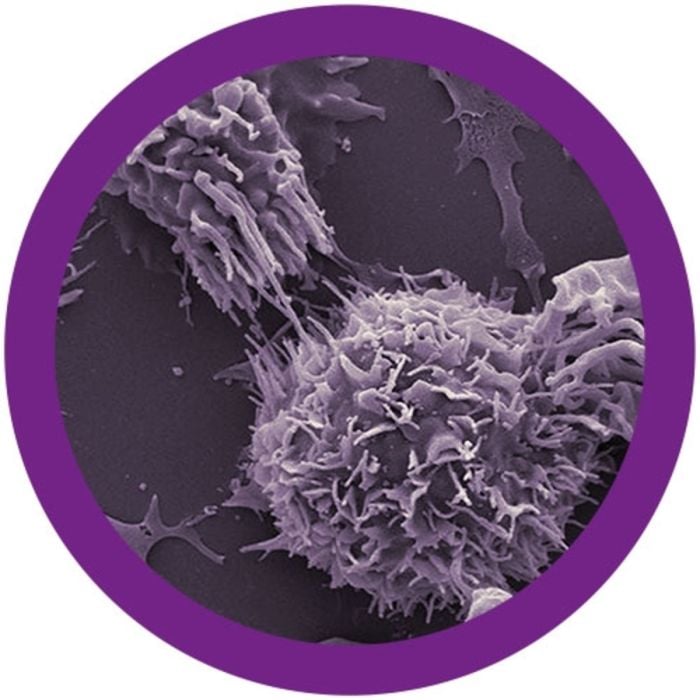Bladder Cancer (Malignant neoplasm)
Our Cancer cell can be "cured" by flipping it inside-out!
Product Details
Additional Information
| Sizes | Giantmicrobes are based on actual microbes, cells, organisms and other critters, only 1,000,000 times actual size! Gigantic (GG) 16-24" XL (XL) 10-15" Original (PD) 5-8" Keychain (KC) 2-4" with clip |
|---|---|
| Materials | Plush from all new materials. Stuffed with polyester fiber fill. Surface washable: sponge with water & soap, air dry. |
| Packaging | Each plush microbe includes a printed card with fun, educational and fascinating facts about the actual microbe or cell. |
| Safety | Every product meets or exceeds U.S. and European standards for safety. For ages 3 and up. |
All about Bladder Cancer (Malignant neoplasm)
FACTS: The term cancer applies to more than 100 different diseases, all of which have two things in common. As a result of genetic damage, normal cells become cancerous and can grow in an uncontrolled manner. In addition, these cells are able to invade other tissues, disrupting and destroying the structures and organs that they infiltrate.
As with most cancers, bladder cancer develops due to genetics as well as risk factors including poor diet, smoking, excessive alcohol consumption, sun exposure, and lack of exercise. Although the fundamentals of treatment – surgery, radiation and chemotherapy – have not changed in many years, advances in imaging, diagnosis, and sophisticated methods for delivering therapies have greatly improved their effectiveness. In addition, breakthroughs in immunotherapy are now being put into practice. As a result, many who develop cancer have a greatly improved chance of recovery compared to a few decades ago.
Bladder cancer is one of the most prevalent types of cancer. It occurs in men more frequently than in women and usually affects adults over the age of 70, although it can happen at any age. This cancer typically develops in the urothelial cells that line the inside of your bladder. On rare occasions it forms in other parts of the urinary tract. Symptoms of bladder cancer may include blood in the urine, painful urination, pelvic or back pain, and frequent urination.
When diagnosed early, bladder cancer is highly treatable. However, even when treated at an early stage, this cancer may recur so follow-up tests should continue for years after treatment.









